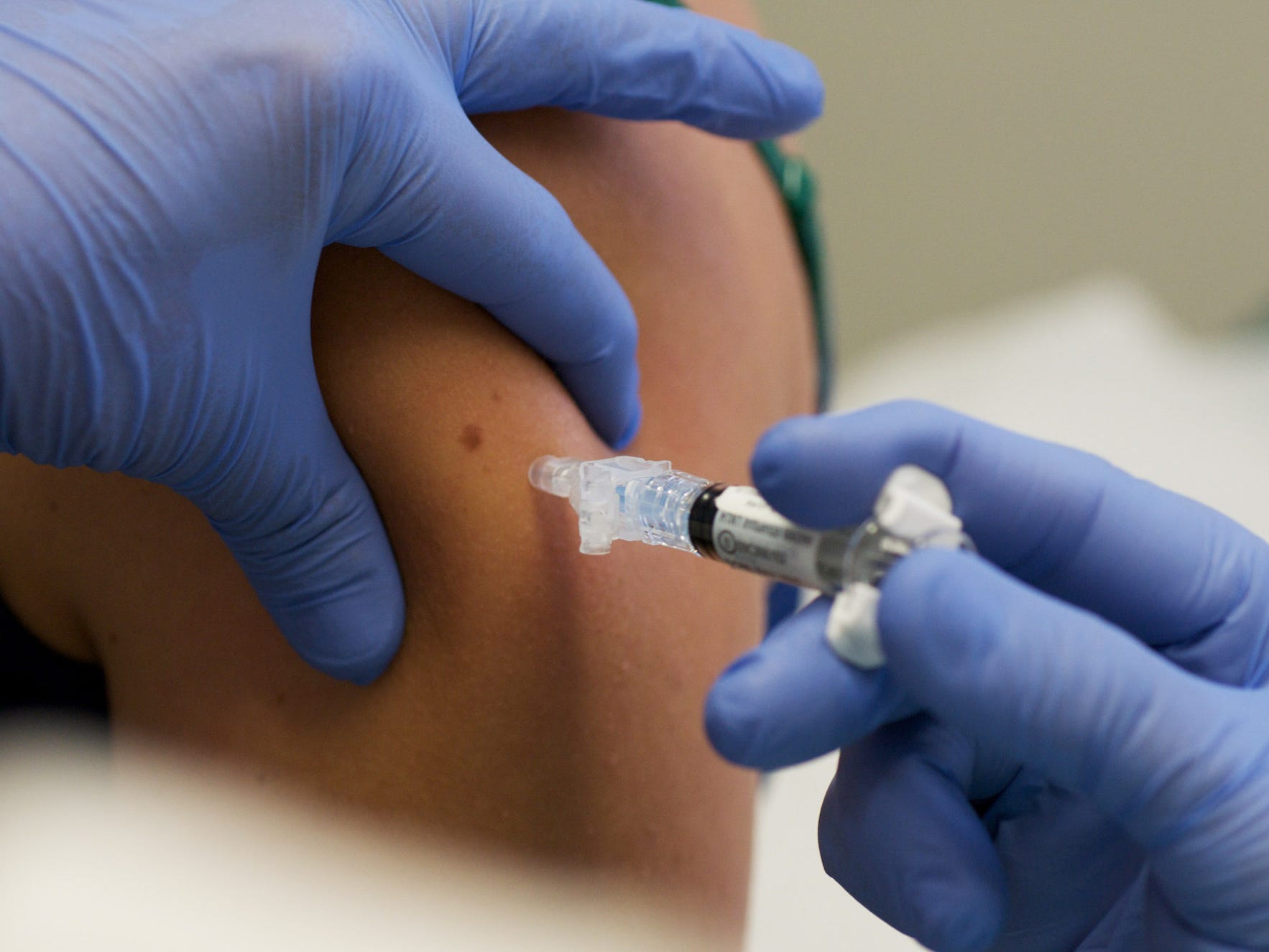
- Companies manufacturing COVID-19 vaccines for drugmakers including Pfizer, Moderna, and AstraZeneca are frantically recruiting research and production staff to meet exceptional demand.
- A Wall Street Journal analysis found more than 5,000 vacancies across the 10 largest companies with COVID-19 vaccine outsourcing contracts.
- One company is offering $3,000 sign-on bonuses to those willing to work night shifts.
- “The pandemic has just accelerated the fight for talent,” Lorna Larson, senior human resources director at Avid Bioservices, told WSJ. “It really is critical right now — and there’s a lot of competition for it.”
- Visit Business Insider’s homepage for more stories.
Millions of people across the West have already been given the first dose of a COVID-19 vaccine and up to to 6 billion more doses could be manufactured in 2021, according to industry tracker PharmSource – provided the companies mass-producing shots can find enough employees.
Companies manufacturing COVID-19 vaccines are struggling to find enough staff to meet their output goals and have thousands of vacancies to fill, an investigation by the Wall Street Journal published Monday found. One company is even offering $3,000 sign-on bonuses for manufacturing staff willing to take overnight shifts.
Drugmakers including Pfizer, Moderna, and AstraZeneca, all of which have vaccines currently being administered in the West, are outsourcing production to contract manufacturers to help them ramp up supply, the Journal reported. The paper’s analysis found more than 5,000 vacancies across the 10 largest companies with outsourcing contracts to manufacture COVID-19 vaccines or the components that go in them.
Many of the roles need years of experience in pharmaceutical manufacturing, or relevant qualifications such as biotechnology degrees, the Journal found. Some of them involve overnight shifts.
“Hiring and ramping up has become challenging,” Sean Kirk, an executive vice president at Emergent BioSolutions, said at an online careers fair in October, per the Journal. The Maryland-based company has been contracted by AstraZeneca and Johnson & Johnson.
At the start of January, the company had more than 180 job vacancies listed on its website, including roles for warehouse associates, engineers, and bioanalytics scientists.
New Jersey-based Catalent, which has vaccine contracts with Moderna, AstraZeneca, and Johnson & Johnson and is one of the US's largest contract manufacturers, is also looking for employees.
As of January 5, the company had 805 vacancies listed on its website. It is targeting ads to people living near its sites using radio streaming service Pandora, and is offering $3,000 sign-on bonuses for manufacturing staff who will take overnight shifts at its Madison, Wisconsin, facility, the Journal reported.
Not being able to fill the roles could impact how much of its production capacity it allocates to COVID-19 vaccines, Bernie Clark, the company's vice president of marketing and strategy, told the Journal.
"To keep adding capacity and new lines, you have to have the people to run them," he said.
California-based Avid Bioservices plans to recruit about 40 new employees by next summer to meet its contracts to produce vaccine components, Lorna Larson, the company's senior director in human resources, told the WSJ. This is twice as many people as it would usually hire, Larson said, and would increase its workforce by around 15%.
"The pandemic has just accelerated the fight for talent," she told the publication.
"It really is critical right now - and there's a lot of competition for it."
Vaccines developed by Moderna and Pfizer-BioNTech are being administered across the US following emergency use authorization by the Food and Drug Administration in December.
A third shot, developed by AstraZeneca and the University of Oxford, was authorized for emergency use in the UK in December and the first injections were given on Monday.
